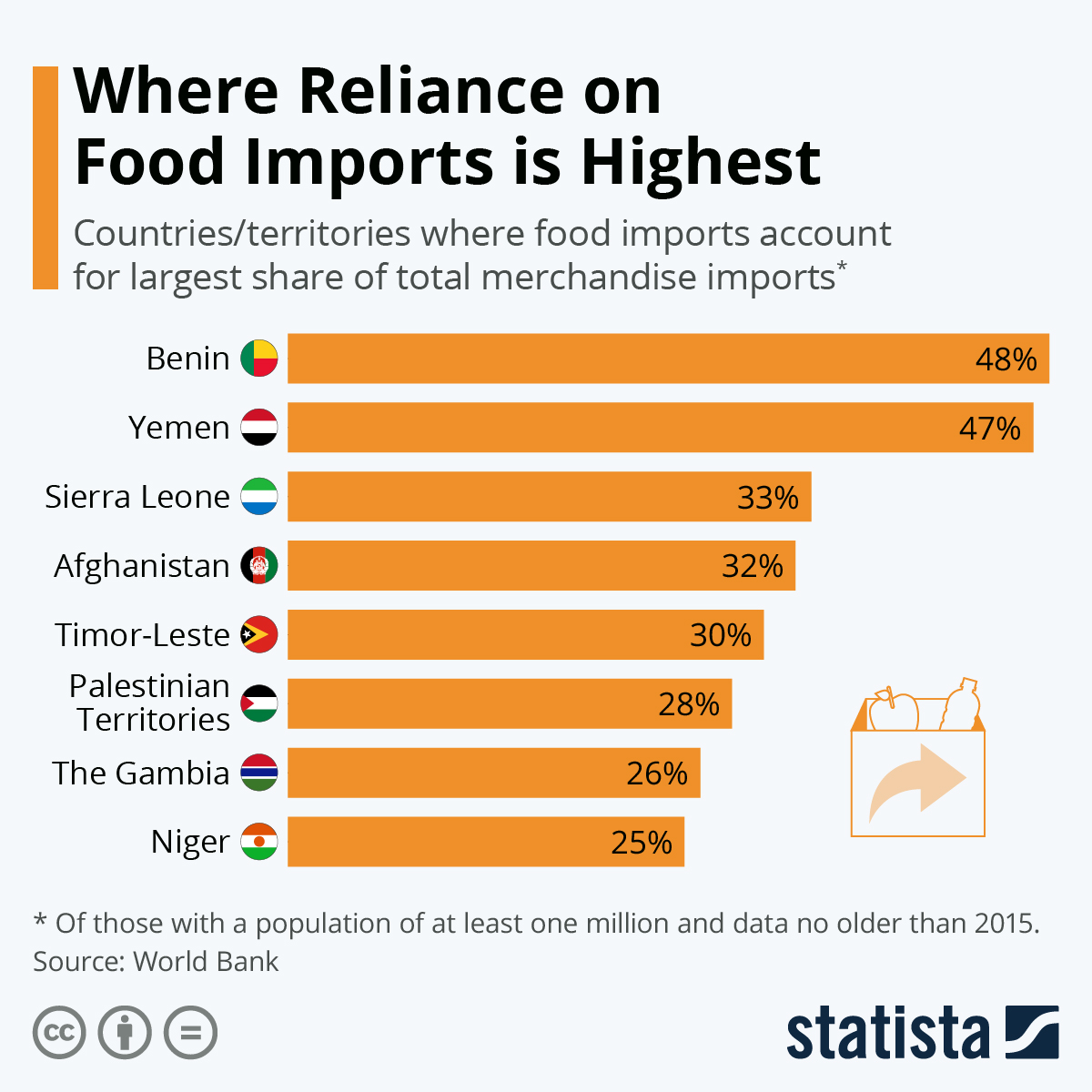The head of the UN's relief agency issued a warning in April that the coronavirus pandemic could produce "famines of biblical proportions." In an article on the UN's news website, this troubling forecast was explained and expanded on as follows: "As the virus plunges more and more people into poverty, and governments respond to the crisis with protectionist policies that restrict food exports, as many as 265 million people across 30 countries could now face starvation."
With the export restrictions in mind, this infographic uses World Bank data to show the countries/territories most reliant on the importation of food. When looking at countries with at least one million people for which recent data is available, the West African country of Benin appears most at risk of a massive problem developing for its roughly 11.5 million inhabitants. Of the country's total merchandise imports in 2018, 48 percent was accounted for by food.
Yemen, already ravaged by a brutal civil war which has claimed over 112,000 lives in five years, is similarly reliant on imported sustenance - here the latest World Bank figure from 2015 is 47 percent. By way of comparison, the figure for the United States was 6 percent in 2018. Canada's share was 8 percent and for the UK it was 7 percent. The advanced economies with the highest shares in 2018 were Portugal and Denmark with 14 percent. The global average is 8 percent.





















